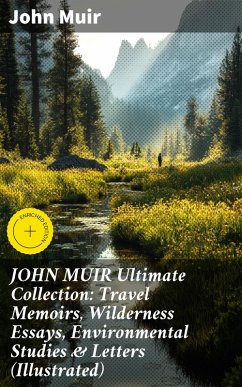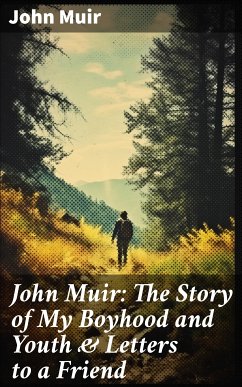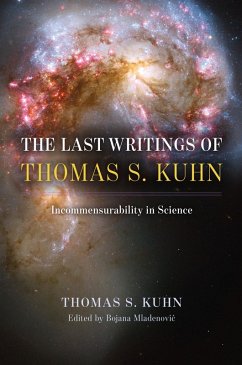
Letters to a Friend, Written to Mrs. Ezra S. Carr, 1866-1879 (eBook, ePUB)
Enriched edition. A Friendship in Letters: Nature, Conservation, and Spirituality with John Muir
Kommentar: Sellers, Brooke / Redaktion: Good Press

PAYBACK Punkte
0 °P sammeln!
In "Letters to a Friend, Written to Mrs. Ezra S. Carr, 1866-1879," John Muir reflects on his profound connections with nature and his philosophical musings, encapsulating the essence of his environmental advocacy and love for the wilderness. Composed as a series of intimate letters, Muir's literary style intertwines poetic lyricism with scientific observation, portraying not only the stunning landscapes of the American West but also the emotional and intellectual resonance these experiences evoke. These letters serve as a lens into Muir's deep appreciation for nature's intricate beauty and his...
In "Letters to a Friend, Written to Mrs. Ezra S. Carr, 1866-1879," John Muir reflects on his profound connections with nature and his philosophical musings, encapsulating the essence of his environmental advocacy and love for the wilderness. Composed as a series of intimate letters, Muir's literary style intertwines poetic lyricism with scientific observation, portraying not only the stunning landscapes of the American West but also the emotional and intellectual resonance these experiences evoke. These letters serve as a lens into Muir's deep appreciation for nature's intricate beauty and his burgeoning conviction that it must be preserved, thus situating the work within the larger context of 19th-century American romanticism and the nascent conservation movement. John Muir, a Scottish-American naturalist, played an instrumental role in the early conservation movement, influencing the establishment of national parks in the United States. His personal experiences growing up in the serene landscape of Scotland and later immersing himself in the untamed beauty of California catalyzed his profound respect for the natural world. Muir's letters to Mrs. Carr reveal his philosophical evolution and the development of his ideas about nature and humanity's relationship to it, enkindled by their shared scholarly interests. For readers seeking an insightful glimpse into the mind of one of America's foremost naturalists, "Letters to a Friend" is an essential read. It offers not only a personal perspective on Muir's life and thoughts but also an enduring message about the importance of preserving the natural world, making it a compelling choice for enthusiasts of environmental literature, history, and philosophy. In this enriched edition, we have carefully created added value for your reading experience: - A comprehensive Introduction outlines these selected works' unifying features, themes, or stylistic evolutions. - The Author Biography highlights personal milestones and literary influences that shape the entire body of writing. - A Historical Context section situates the works in their broader era-social currents, cultural trends, and key events that underpin their creation. - A concise Synopsis (Selection) offers an accessible overview of the included texts, helping readers navigate plotlines and main ideas without revealing critical twists. - A unified Analysis examines recurring motifs and stylistic hallmarks across the collection, tying the stories together while spotlighting the different work's strengths. - Reflection questions inspire deeper contemplation of the author's overarching message, inviting readers to draw connections among different texts and relate them to modern contexts. - Lastly, our hand-picked Memorable Quotes distill pivotal lines and turning points, serving as touchstones for the collection's central themes.
Dieser Download kann aus rechtlichen Gründen nur mit Rechnungsadresse in A, B, BG, CY, CZ, D, DK, EW, E, FIN, F, GR, H, IRL, I, LT, L, LR, M, NL, PL, P, R, S, SLO, SK ausgeliefert werden.













